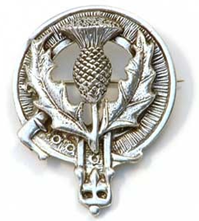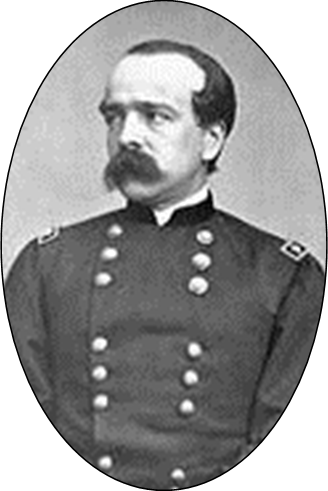 |
|

Best viewed in
|
"Taps" is a musical piece sounded at dusk, and at funerals, particularly by the U.S. military. It is sounded during flag ceremonies and funerals, generally on bugle or trumpet, and often at Boy Scout, Girl Scout and Girl Guide meetings and camps. The tune is also sometimes known as "Butterfield's Lullaby", or by the first line of the lyric, Day is Done. The term originates from the Dutch term taptoe, meaning "close the (beer) taps and send the troops back to camp". "Military tattoo" comes from the same origin.The tune is actually a variation of an earlier bugle call known as the Scott Tattoo which was used in the U.S. from 1835 until 1860, and was arranged in its present form by the Union Army Brigadier General Daniel Butterfield, an American Civil War general and Medal of Honor recipient who commanded the 3rd Brigade of the 1st Division in the V Army Corps of the Army of the Potomac while at Harrison's Landing, Virginia, in July 1862 to replace a previous French bugle call used to signal "lights out". Butterfield's bugler, Oliver W. Norton, of Angelica, New York, was the first to sound the new call. Within months, "Taps" was used by both Union and Confederate forces. It was officially recognized by the United States Army in 1874. An alternative and probably more accurate account of the origin of TAPS comes from West Point and the direct recollections of the bugler himself and General Butterfield. This also explains how bugles were used to communicate to one officer's command. The initial notes in TAPS identify it as coming from Butterfield - not another commander. As the General writes, the first notes in any bugle call would tell the troops in a particular command to pay attention to it, and then tell them what to do - such as go forward, stop and lie down, or in this case go to sleep. Captain John C. Tidball, West Point, Class of 1848, started the custom of playing taps at a military funeral. It was in early July 1862 at Harrison’s Landing, that a corporal of Tidball’s Battery A, 2nd Artillery, died. He was, Tidball recalled later, “a most excellent man.” Tidball desired to bury him with full military honors, but was refused, for military reasons, permission to fire three guns over his grave. Tidball later wrote, “The thought suggested itself to me to sound taps instead, which I did. The idea was taken up by others, until in a short time it was adopted by the entire army and is now looked upon as the most appropriate and touching part of a military funeral.” As Tidball proudly proclaimed, “Battery A has the honor of having introduced this custom into the service, and it is worthy of historical note.” It became a standard component to U.S. military funerals in 1891. There are several legends concerning the origin of "Taps". The most widely circulated is that a Union Army infantry officer, whose name is often given as Captain Robert Ellicombe, first ordered the "Taps" performed at the funeral of his son, a Confederate soldier killed during the Peninsula Campaign. This apocryphal story claims that Ellicombe found the tune in the pocket of his son's clothing and performed it to honor his memory. But there is no record of any man named Robert Ellicombe holding a commission as captain in the Army of the Potomac during the Peninsula Campaign. That Daniel Butterfield composed "Taps" has been sworn to by numerous reputable witnesses including Oliver Norton, the bugler who first performed the tune. While scholars continue to debate whether or not the tune was original or based on an earlier melody, few researchers doubt that Butterfield is responsible for the current tune. Another, perhaps more historically verifiable, account of "Taps" first being used in the context of a military funeral involves John C. Tidball, a Union artillery captain who during a break in fighting ordered the tune sounded for a deceased soldier in lieu of the more traditional—and much less discreet—three volley tribute. Army Col. James A. Moss, in an Officer's Manual initially published in 1911, reports the following: "During the Peninsula Campaign in 1862, a soldier of Tidball's Battery A of the 2nd Artillery was buried at a time when the battery occupied an advanced position concealed in the woods. It was unsafe to fire the customary three volleys over the grave, on account of the proximity of the enemy, and it occurred to Capt. Tidball that the sounding of Taps would be the most appropriate ceremony that could be substituted." While not necessarily addressing the origin of the "Taps", this does represent a milestone as the first recorded instance of "Taps" being sounded as part of a military funeral. Until then, while the tune had meant that the soldiers' day of work was finished, it had little to none of the connotation or overtone of death with which it is so often associated today. Echo, or Silver Taps - the practice of performing “Taps” with multiple buglers - is a traditional at American military schools such as Norwich University, The Citadel, NMMI and Texas A&M University when a member or former member of a school's Corps of Cadets is killed in action. The practice of performing “Taps” with multiple buglers is not authorized by the U.S. Army. The melody of "Taps" is composed entirely from the written notes of the C major triad. This is because the bugle, for which it is written, can play only the notes in the harmonic series of the fundamental tone of the instrument:
Here is the tune transcribed for Highland Bagpipes:
Lyrics There is one original set of lyrics meant to accompany the music, written by Horace Lorenzo Trim: Day is done, gone
the sun Several later lyrical adaptations have been created. One, written by Horace Lorenzo Trim, is shown below: Fading light dims
the sight The other popular version, penned and harmonized by famed composer Josef Pasternack, is: Love, sweet
dreams! Another set of lyrics, used in a recording made by John Wayne about the song, is: Fading light |


